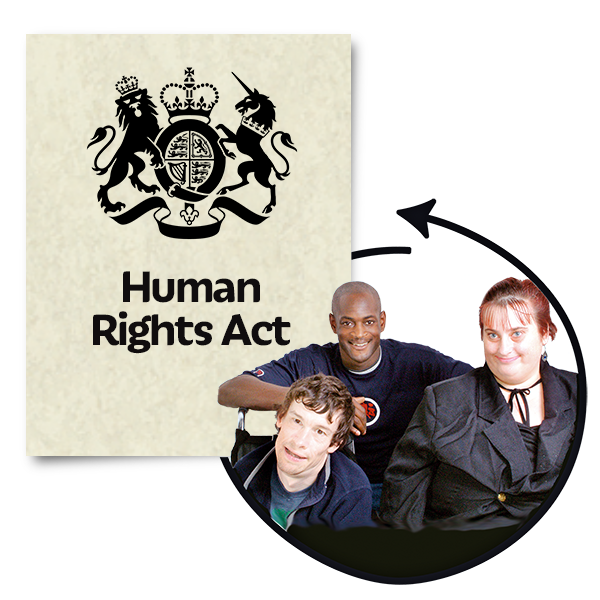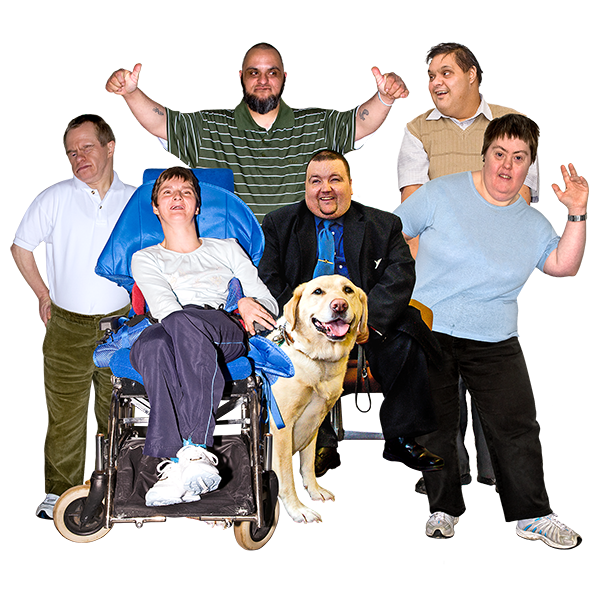Today the Care Quality Commission (CQC) published its “Out of Sight - who cares? Restraint, segregation and seclusion review: progress report.”
This follows their Oct 2020 report into the use of restrictive practices in inpatient settings and other services for people with a
learning disability
 A learning disability is to do with the way someone's brain works. It makes it harder for someone to learn, understand or do things.
, autistic people, and people with mental ill health.
A learning disability is to do with the way someone's brain works. It makes it harder for someone to learn, understand or do things.
, autistic people, and people with mental ill health.
That report made 17 key recommendations to stop unacceptable practice. Findings published in today’s progress report reveal that:
- 13 of the 17 recommendations for change have not been achieved at all. The other four recommendations have only been partially met.
- Restrictive interventions continue and are often used inappropriately when people communicate their distress and unmet needs. There are more people in long-term segregation now than there were in 2019.
- People’s
human rights
 Human
rights
Human
rights
 Rights are the things everyone should be allowed to do like have a say, or go to school.
are the rights that everyone has. These include the right to go to school and the right to start a family.
continue to be at risk. They are not benefiting from reasonable adjustments under the
Equality
Rights are the things everyone should be allowed to do like have a say, or go to school.
are the rights that everyone has. These include the right to go to school and the right to start a family.
continue to be at risk. They are not benefiting from reasonable adjustments under the
Equality
 Equality is when everyone is treated fairly.
Act or from an understanding of human rights.
Equality is when everyone is treated fairly.
Act or from an understanding of human rights. - There are still too many people in hospital, in environments that are not therapeutic, and people are staying there too long.
- Commissioners are still not always working in partnership, and the focus remains on fitting people into available services with insufficient focus on designing the support that the person needs.
- Not enough people are able to have a home of their own with the right support in place.
- Where Care,
Education
 Education is when you learn things. When you fill in a form to get a job, education means you write where you went to school, college or university.
and Treatment Reviews (CETRs) are taking place, people are not seeing their recommendations acted on.
Education is when you learn things. When you fill in a form to get a job, education means you write where you went to school, college or university.
and Treatment Reviews (CETRs) are taking place, people are not seeing their recommendations acted on. - There is a single minister overseeing the Building the Right Support Delivery Board. However, the action plan is not yet finalised and without clarity of governance and clear responsibility for delivery, there is insufficient evidence of impact on people’s lives.
Dan Scorer, Head of Policy at learning disability charity Mencap, said:
“This report sets out a damning assessment
An assessment is a way of finding out what help a person needs. When you have an assessment, you might have to go to a meeting or fill in a form. on lack of action by the Government
The Government are the people who run the country. The Government decide how much tax people should pay and how things like the National Health Service (NHS) should work. , NHS England and local authorities in addressing key recommendations made by the commission 18 months ago. It’s shocking that in CQC's assessment, these agencies have failed to make meaningful progress in tackling use of restrictive practices, including physical restraint, over-medication and solitary confinement against people with a learning disability and autistic people within modern-day asylums.
“Over 2,000 people who have a learning disability and/or autism
Autism is a disability. Autistic people find it difficult to understand what other people think and feel. They also find it difficult to tell people what they think and feel. Everyone with autism is different. continue to be locked away where they are at increased risk of abuse and neglect. This is a human rights scandal and there can be no more excuses. People need and deserve appropriate person-centred care that truly meets their needs.
“It has been several years since the Government called for this review into the devastating use of restrictive interventions. Yet we continue to see shocking evidence of human rights failures come to light, including at Cawston Park Hospital, where a series of failings led to the deaths of three people with a learning disability.
“The Government has missed repeated targets to close inpatient beds and develop the right community
A community is the people and places in an area. support. The reduction promised by 2019 has still not been met and the shocking findings of today’s report add to our concerns. At this rate of progress, NHS England stands to miss their target to deliver a 50% reduction in inpatient beds by 2024.
“The forthcoming cross-government action plan for the Transforming Care programme must fully address and action all of the recommendations outlined by the CQC, as well as developing and providing suitable care for people with a learning disability in their communities.”
-ENDS-
For further information or to arrange an
interview
 An interview is a meeting where you talk to someone or a group of people about something. When you have an interview for a job, you have to answer questions and say why you would be good at the job. The person who gives the best answers is offered the job.
with a Mencap
spokesperson
An interview is a meeting where you talk to someone or a group of people about something. When you have an interview for a job, you have to answer questions and say why you would be good at the job. The person who gives the best answers is offered the job.
with a Mencap
spokesperson
 A spokesperson is someone who speaks up about something. They usually speak up on behalf of a group or
organisation
A spokesperson is someone who speaks up about something. They usually speak up on behalf of a group or
organisation
 An organisation are a group of people who work together.
.
or
case study
An organisation are a group of people who work together.
.
or
case study
 A case study is a piece of writing that tells people more information about someone's experience.
, please contact Mencap’s media team on: media@mencap.org.uk or 020 7696 5414 (including out of hours).
A case study is a piece of writing that tells people more information about someone's experience.
, please contact Mencap’s media team on: media@mencap.org.uk or 020 7696 5414 (including out of hours).
Notes to editors:
About Mencap
There are approximately 1.5 million people with a learning disability in the UK. Mencap works to support people with a learning disability, their families and carers by fighting to change laws, improve services and access to education,
employment
 Employment means having a job.
and
leisure
Employment means having a job.
and
leisure
 Leisure is when you have time to do things you enjoy like playing sports or going to the pub.
facilities. Mencap supports thousands of people with a learning disability to live their lives the way they want: www.mencap.org.uk
Leisure is when you have time to do things you enjoy like playing sports or going to the pub.
facilities. Mencap supports thousands of people with a learning disability to live their lives the way they want: www.mencap.org.uk
For advice and information about learning disability and Mencap services in your area, contact Mencap’s Freephone Learning Disability Helpline on 0808 808 1111 (10am-3pm, Monday-Friday) or email helpline@mencap.org.uk.
What is a learning disability?
- A learning disability is a reduced intellectual ability which means that people might need support with everyday tasks – for example shopping and cooking, or travelling to new places – which affects someone for their whole life;
- Learning disability is NOT a mental illness or a learning difficulty, such as
dyslexia
 Dyslexia is a learning difficulty. People who have dyslexia can find it hard to read, write and spell.
. Very often the term ‘learning difficulty’ is wrongly used interchangeably with ‘learning disability’;
Dyslexia is a learning difficulty. People who have dyslexia can find it hard to read, write and spell.
. Very often the term ‘learning difficulty’ is wrongly used interchangeably with ‘learning disability’; - People with a learning disability can take longer to learn new things and may need support to develop new skills, understand difficult information and engage with other people. The level of support someone needs is different with every individual. For example, someone with a severe learning disability might need much more support with daily tasks than someone with a mild learning disability